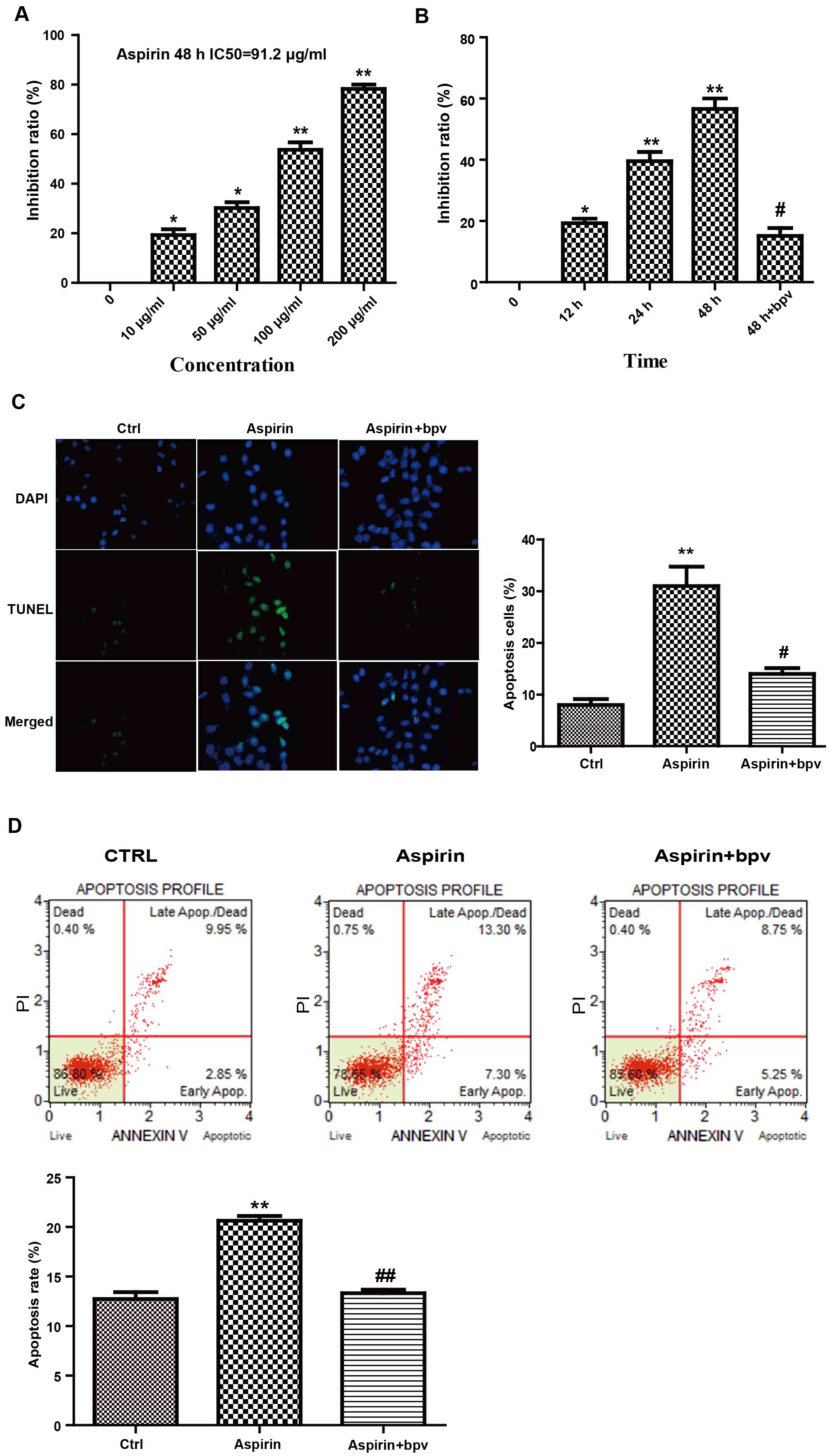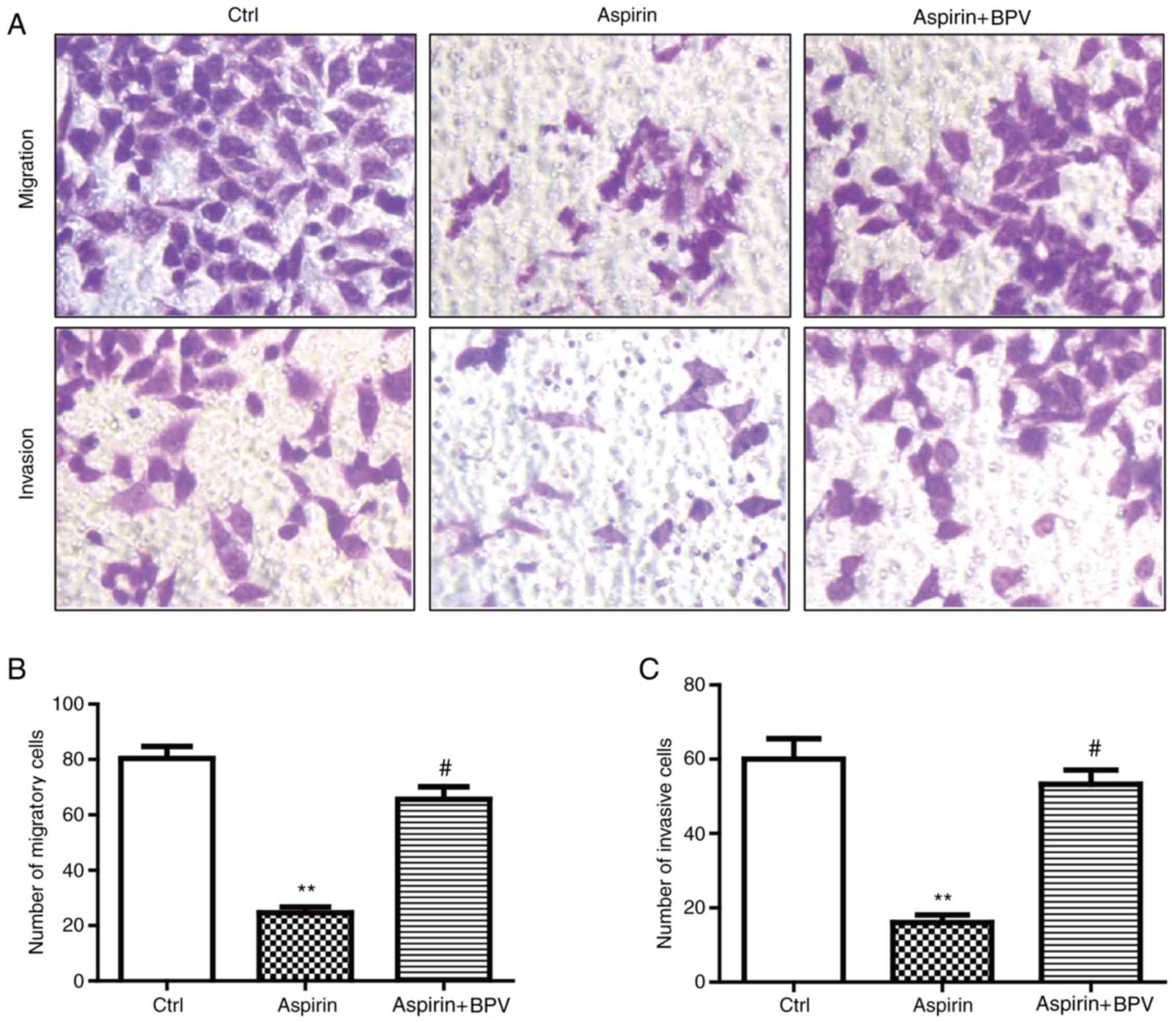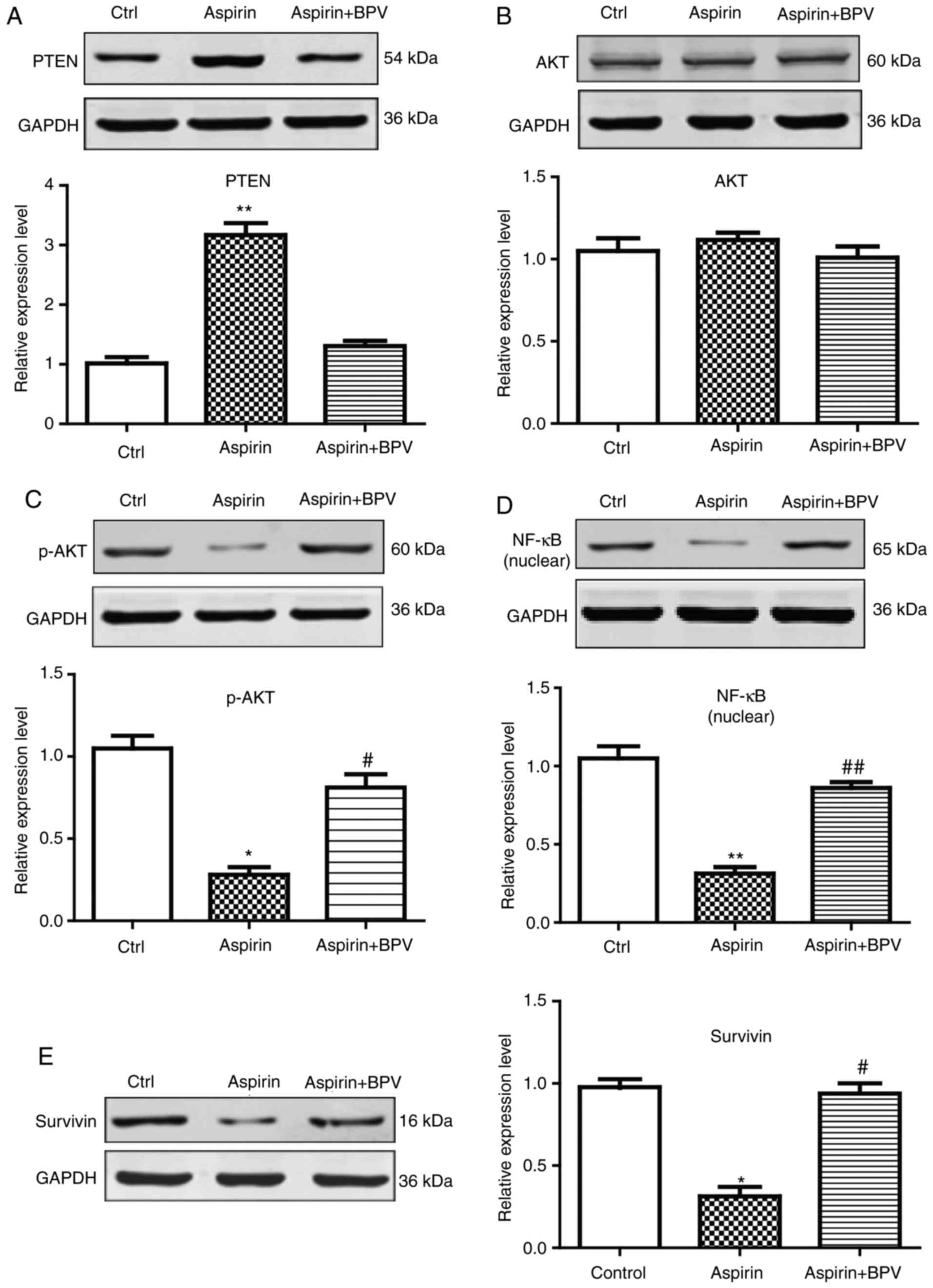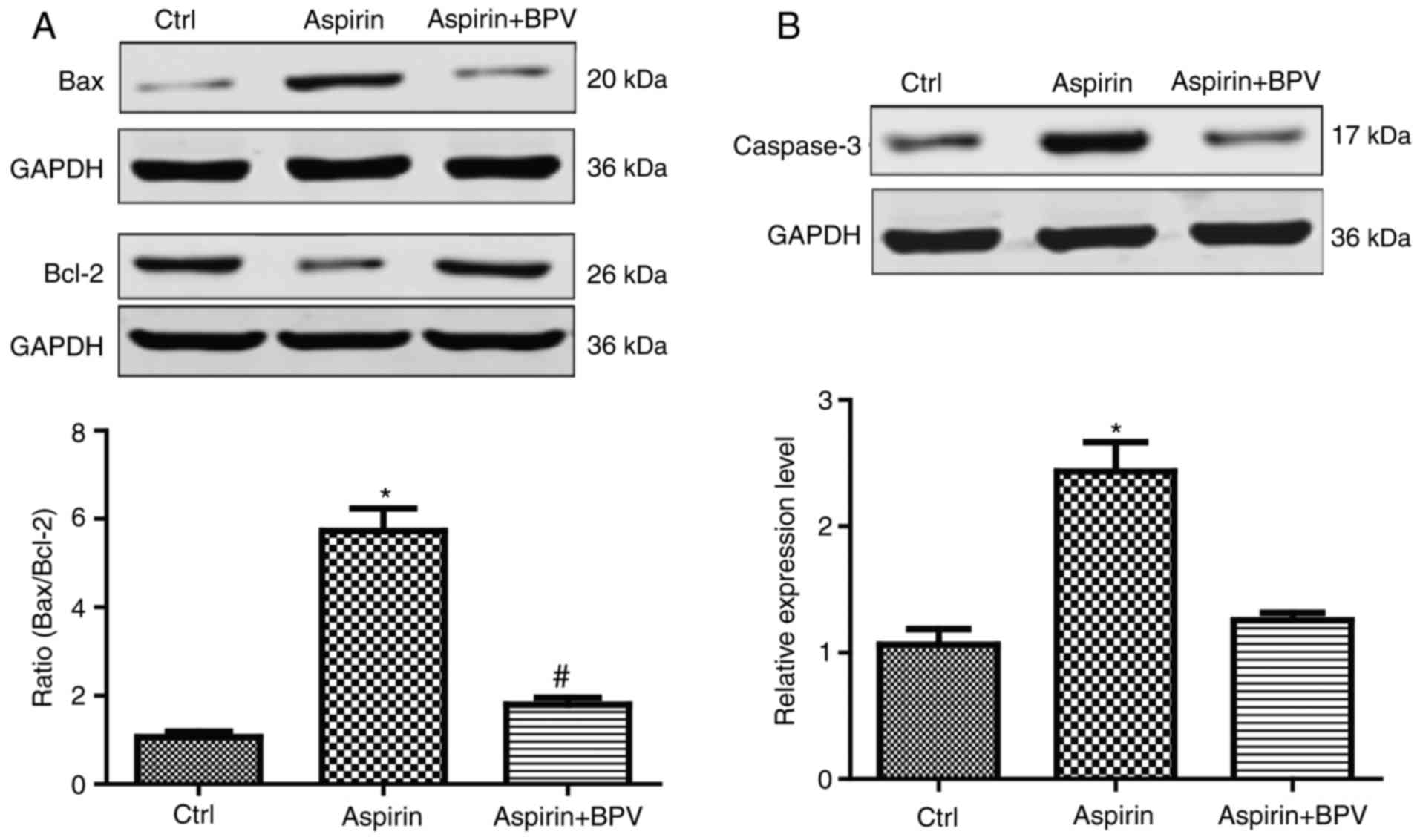|
1
|
Torre LA, Bray F, Siegel RL, Ferlay J,
Lortet-Tieulent J and Jemal A: Global cancer statistics, 2012. CA
Cancer J Clin. 65:87–108. 2015. View Article : Google Scholar : PubMed/NCBI
|
|
2
|
Jemal A, Bray F, Center MM, Ferlay J, Ward
E and Forman D: Global cancer statistics. CA Cancer J Clin.
61:69–90. 2011. View Article : Google Scholar : PubMed/NCBI
|
|
3
|
Kirkegård J, Mortensen FV and
Cronin-Fenton D: Chronic pancreatitis and pancreatic cancer risk: A
systematic review and meta-analysis. Am J Gastroenterol.
112:1366–1372. 2017. View Article : Google Scholar : PubMed/NCBI
|
|
4
|
Komaki Y, Komaki F, Micic D, Ido A and
Sakuraba A: Risk of colorectal cancer in chronic kidney disease: A
systematic review and meta-analysis. J Clin Gastroenterol.
18–Jul;2017.doi: 10.1097/MCG.0000000000000880. View Article : Google Scholar
|
|
5
|
Bopanna S, Ananthakrishnan AN, Kedia S,
Yajnik V and Ahuja V: Risk of colorectal cancer in Asian patients
with ulcerative colitis: A systematic review and meta-analysis.
Lancet Gastroenterol Hepatol. 2:269–276. 2017. View Article : Google Scholar : PubMed/NCBI
|
|
6
|
Haugvik SP, Ibrahim Basim I, Hedenstrom P,
Hedenström P, Valente R, Hayes AJ, Siuka D, Gladhaug IP and Capurso
G: Smoking, alcohol and family history of cancer as risk factors
for small intestinal neuroendocrine tumors: A systematic review and
meta-analysis. Scand J Gastroenterol. 52:797–802. 2017. View Article : Google Scholar : PubMed/NCBI
|
|
7
|
Sneader W: The discovery of aspirin: A
reappraisal. BMJ. 321:1591–1594. 2000. View Article : Google Scholar : PubMed/NCBI
|
|
8
|
Sandler RS, Galanko JC, Murray SC, Helm JF
and Woosley JT: Aspirin and nonsteroidal anti-inflammatory agents
and risk for colorectal adenomas. Gastroenterology. 114:441–447.
1998. View Article : Google Scholar : PubMed/NCBI
|
|
9
|
Harris RE, Namboodiri KK and Farrar WB:
Nonsteroidal antiinflammatory drugs and breast cancer.
Epidemiology. 7:203–205. 1996. View Article : Google Scholar : PubMed/NCBI
|
|
10
|
Dasgupta K, Di Cesar D, Ghosn J, Rajan R,
Mahmud S and Rahme E: Association between nonsteroidal
anti-inflammatory drugs and prostate cancer occurrence. Cancer J.
12:130–135. 2006.PubMed/NCBI
|
|
11
|
Harris RE, Beebe-Donk J and Alshafie GA:
Reduced risk of human lung cancer by selective cyclooxygenase 2
(COX-2) blockade: Results of a case control study. Int J Biol Sci.
3:328–334. 2007. View Article : Google Scholar : PubMed/NCBI
|
|
12
|
McCaffrey P: Aspirin use reduces
skin-cancer risk. Lancet Oncol. 7:162006. View Article : Google Scholar : PubMed/NCBI
|
|
13
|
Nelson-Rees WA, Zhdanov VM, Hawthorne PK
and Flandermeyer RR: HeLa-like marker chromosomes and type-A
variant glucose-6-phosphate dehydrogenase isoenzyme in human cell
cultures producing Mason-Pfizer monkey virus-like particles. J Natl
Cancer Inst. 53:751–757. 1974. View Article : Google Scholar : PubMed/NCBI
|
|
14
|
Chen TR: Re-evaluation of HeLa, HeLa S3,
and HEp-2 karyotypes. Cytogenet Cell Genet. 48:19–24. 1988.
View Article : Google Scholar : PubMed/NCBI
|
|
15
|
Carter KL and Roizman B: The promoter and
transcriptional unit of a novel herpes simplex virus 1 alpha gene
are contained in, and encode a protein in frame with, the open
reading frame of the alpha 22 gene. J Virol. 70:172–178.
1996.PubMed/NCBI
|
|
16
|
Tarnawski AS, Ahluwalia A and Jones MK:
Angiogenesis in gastric mucosa: An important component of gastric
erosion and ulcer healing and its impairment in aging. J
Gastroenterol Hepatol. 4 29 Suppl:S112–S123. 2014. View Article : Google Scholar
|
|
17
|
Suen DF, Norris KL and Youle RJ:
Mitochondrial dynamics and apoptosis. Genes Dev. 22:1577–1590.
2008. View Article : Google Scholar : PubMed/NCBI
|
|
18
|
Slee EA, Adrain C and Martin SJ:
Executioner caspase-3, −6, and −7 perform distinct, non-redundant
roles during the demolition phase of apoptosis. J Biol Chem.
276:7320–7326. 2001. View Article : Google Scholar : PubMed/NCBI
|
|
19
|
Gilroy DW: The role of aspirin-triggered
lipoxins in the mechanism of action of aspirin. Prostaglandins
Leukot Essent Fatty Acids. 73:203–210. 2005. View Article : Google Scholar : PubMed/NCBI
|
|
20
|
Chen X, Yang C, Xu Y, Zhou H, Liu H and
Qian W: The microtubule depolymerizing agent CYT997 effectively
kills acute myeloid leukemia cells via activation of caspases and
inhibition of PI3K/Akt/mTOR pathway proteins. Exp Ther Med.
6:299–304. 2013. View Article : Google Scholar : PubMed/NCBI
|
|
21
|
Ahmad A, Biersack B, Li Y, Kong D, Bao B,
Schobert R, Padhye SB and Sarkar FH: Targeted regulation of
PI3K/Akt/mTOR/NF-κB signaling by indole compounds and their
derivatives: Mechanistic details and biological implications for
cancer therapy. Anticancer Agents Med Chem. 13:1002–1013. 2013.
View Article : Google Scholar : PubMed/NCBI
|
|
22
|
Wang L, Yao J, Sun H, He K, Tong D, Song T
and Huang C: MicroRNA-101 suppresses progression of lung cancer
through the PTEN/AKT signaling pathway by targeting DNA
methyltransferase 3A. Oncol Lett. 13:329–338. 2017. View Article : Google Scholar : PubMed/NCBI
|


















